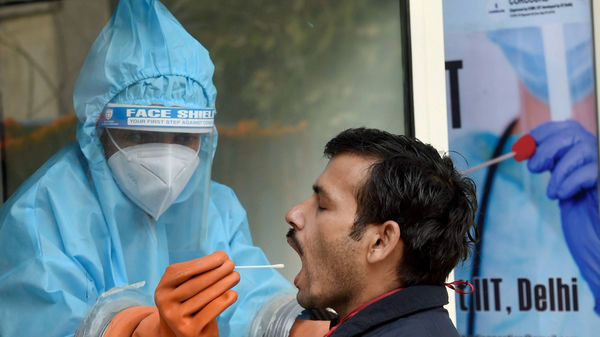Scientists in the UK have shared findings from a massive ‘human challenge trial’, where volunteers were infected with the virus deliberately.
Thirty-six healthy and young individuals aged 18-30, with no prior history of COVID-19 or vaccination against the infection, were given a low dose of the virus through nasal drops. They were then carefully monitored for two weeks.
Also Read: NeoCoV coronavirus: What WHO has to say about the new virus
While 18 of them became infected, nobody developed serious symptoms. All COVID-19 positive volunteers had mild to moderate cold-like symptoms, such as sneezing, stuffy or runny nose, tiredness, sore throat, fever, muscle or joint aches, and headaches. Thirteen of them also reported losing their sense of smell, which later returned within three months in ten of them.
Importantly, the virus had no impact on the lungs of these participants.
Also Read: ‘Stealth omicron’ & COVID: Has the BA.2 sublineage been reported in India?
The study was part of the Human Challenge Programme, a partnership between Imperial College London, the Vaccine Taskforce and Department of Health and Social Care (DHSC), hVIVO (part of Open Orphan plc.), and the Royal Free London NHS Foundation Trust.
In a statement about the study, the researchers said, “The collaborative study is the first in the world to perform detailed monitoring over the full course of COVID-19, from the moment a person first encounters SARS-CoV-2, throughout the infection to the point at which the virus is apparently eliminated.”
Also Read: Omicron is less severe as it spares the lungs, studies suggest
The research has been published in Springer Nature’s preprint database and is yet to be peer-reviewed.
Professor Christopher Chiu, from the Department of Infectious Disease and the Institute of Infection at Imperial College London and Chief Investigator on the trial, said: “First and foremost, there were no severe symptoms or clinical concerns in our challenge infection model of healthy young adult participants.
“People in this age group are believed to be major drivers of the pandemic and these studies, which are representative of mild infection, allow detailed investigation of the factors responsible for infection and pandemic spread. Our study reveals some very interesting clinical insights, particularly around the short incubation period of the virus, extremely high viral shedding from the nose, as well as the utility of lateral flow tests, with potential implications for public health,” he added.
Also Read: COVID-19: Chinese researchers discover ‘godsend’ antibody against omicron
The researchers tracked the volunteers right from the point of exposure to the virus till their recovery. The average time it took for the virus symptoms to show was 42 hours in the 18 patients. This was followed by a steep rise in the viral load found in the throat and nose of the patients, with a peak at around five days into the infection, according to a Live Science report.
“But high levels of viable (infectious) virus were still picked up in lab tests up to nine days after inoculation on average, and up to a maximum of 12 days for some, supporting the isolation periods advocated in most guidelines,” the study authors noted in the statement.
Professor Sir Jonathan Van-Tam, Deputy Chief Medical Officer for England, said about the study, “This important study has provided further key data on COVID-19 and how it spreads, which is invaluable in learning more about this novel virus, so we can fine-tune our response. Challenge studies could still prove to be important in the future to speed the development of ‘next-generation’ Covid-19 vaccines and antiviral drugs.







